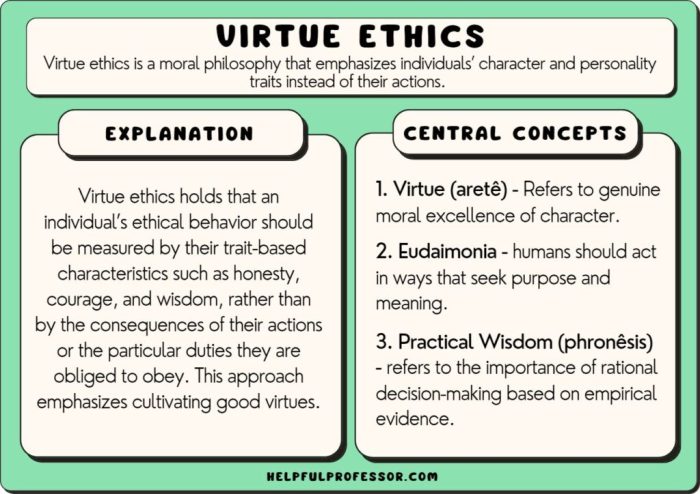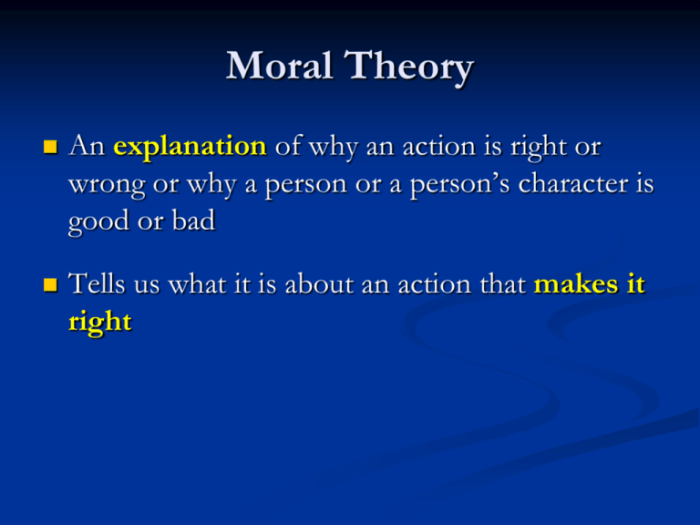According to utilitarianism gaining moral knowledge – In the realm of ethics, utilitarianism stands as a prominent theory that prioritizes maximizing happiness. Within this framework, gaining moral knowledge assumes paramount importance, as it empowers individuals to make ethical decisions that align with utilitarian principles. This article delves into the various methods for acquiring moral knowledge, the challenges involved, and the role of utilitarianism in shaping our understanding of right and wrong.
Utilitarianism’s focus on maximizing happiness provides a clear and objective standard for evaluating moral actions. By considering the consequences of our choices and aiming to produce the greatest happiness for the greatest number, we can navigate ethical dilemmas with a sense of clarity and purpose.
However, the path to gaining moral knowledge is not without its complexities, as we encounter subjective beliefs, cultural relativism, and cognitive biases that can cloud our judgment.
2. Methods for Gaining Moral Knowledge

Rationalism
Rationalism is a method of acquiring moral knowledge through deductive reasoning from first principles. It posits that moral truths are inherent and can be derived logically from axioms or self-evident truths. Rationalists argue that morality is objective and universal, and that moral principles can be discovered through reason alone.
Empiricism, According to utilitarianism gaining moral knowledge
Empiricism, on the other hand, emphasizes the role of observation and experience in gaining moral knowledge. It holds that moral beliefs are not innate but are formed through interactions with the environment. Empiricists believe that morality is subjective and varies depending on individual experiences and cultural contexts.
Intuitionism
Intuitionism is a theory that moral knowledge is derived from innate moral intuitions or sentiments. Intuitionists believe that certain moral principles are self-evident and can be known directly through intuition. They argue that morality is objective and universal, as these intuitions are shared by all rational beings.
Revelation
Revelation refers to the belief that moral knowledge is revealed through divine or supernatural sources, such as religious texts or spiritual experiences. Revelation-based moral knowledge is considered authoritative and binding, and is often used as a basis for religious or spiritual ethics.
FAQ Resource: According To Utilitarianism Gaining Moral Knowledge
What is the primary focus of utilitarianism?
Utilitarianism prioritizes maximizing happiness and reducing suffering for the greatest number of people.
How does utilitarianism contribute to gaining moral knowledge?
Utilitarianism provides a framework for assessing the moral implications of actions based on their consequences and the overall happiness they produce.
What are some challenges in gaining moral knowledge?
Challenges include subjective beliefs, cultural relativism, and cognitive biases that can influence our moral judgments.


